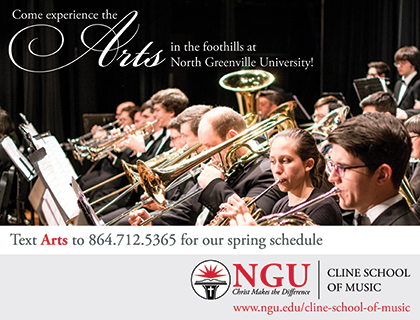At age 5, Tchivzhel was enrolled at a prestigious, highly competitive music school in St. Petersburg, where he majored in piano for 11 years until continuing those studies at the Leningrad Conservatoire. “My father wanted me to conduct eventually,” he says. “Before World War II, my father started conducting, but then the war broke.”
A child born in Soviet Russia at the onset of the Cold War, of course he was technically forbidden from outside-the-wall media such as “Voice of America” — which along with the sounds of Duke Ellington, Ella Fitzgerald, and the “absolutely fantastic” Louis Armstrong, brought news and highlights of the world. His father would come home from performing at the theatre, and the two who “didn’t sleep as well” would listen to the radio together.
The Russian-language broadcast began at 11 pm and would last until 2 am. “We would start on one frequency, and in five minutes, Russia would overwhelm it – liberty, freedom or anything outside of the wall.” So they would jump frequencies ahead of Russian policing, often to no avail; but “Sometimes you could hear it all night!
“Everyone was curious of course — despite fears of your apartment neighbors, who could report on you. So it was kind of a very dangerous game, but many people wanted to get away from this Russian brainwashing with the Soviet Union. ‘Voice of America’ was very helpful. That was a major source of information.”
Though jazz is still a most beloved genre for Maestro Tchivzhel, he considers symphonic music “the highest form of music-making” – partly because it embraces nearly all instruments, and involves up to hundreds of musicians playing together. But he was fascinated by the unrestrained, liberated openness of jazz improvisation.
For classical legends such as Handel and Bach, improvisation used to be a part of the composition process; but according to Tchivzhel, these days “very few classical musicians can still do it. But jazz players, they improvise. They are very interesting! Some of them don’t know how to read notes. It’s simply by ear. Their skill is amazing. They might write it later, after they improvise it from their mind and soul. It is very special.”
For the Maestro, the magic of creating music in its most sublime form is not reliant on education, training or technique. There are “a thousand composers” who might be prolific or have impeccable resumes, but they aren’t Tchaikovsky or Bach. “That type of music – they receive it. They get it and they let us know about it. It’s supposed to come to you. You cannot wing it. Of course everybody can learn how to do something if you are, more or less, musically inclined. Technique alone is not enough.” Instead, the value of music is found in pure emotional expression — “a combination of colors and power.”
Neither does the Maestro believe that technique alone is sufficient for a great orchestral conductor. As the leader of a large group of people, it’s much more about understanding and influencing them – one has to understand the nature of the instruments, but also the orchestra playing them. He even refers to the various sounds of the instruments as “voices.”
“You have to hear all the musicians themselves. They are all people, human beings. So when you are working with them, it’s not like plucking strings. It’s feelings, emotional influence on other people. You have to give them that. Everyone can show someone how to play, but it doesn’t mean you can conduct. You have to make sure you do not destroy the orchestra.”
In addition to piano, Maestro Tchivzhel gained experience throughout the years in playing orchestral cello and the French horn. At age 18 and in his first year in the Leningrad Conservatoire, he was to be drafted into service like everyone else. But a couple years in advance, he received “smart advice” to start the French horn. He could earn an invitation into the Meter Band of St. Petersburg, which usually played on special occasions for the government, in parades, and at “funerals of generals and big guys.”
So that is what he did.
“I was lucky. There is no such occasion for a piano player in the band, because it’s only woodwinds, brass and percussion. They said that if I played some brass instrument they would take me, and in free time I could play piano concerto. I just blew my French horn from 10 until 2 in the afternoon, and then they let me go. I continued to study in the conservatory, which was very important, and also, I had nice practice.”
Though he had mastered several instruments, in order to conduct he completed three more years of postgraduate study at the Conservatoire’s Higher Academy of Music in the prestigious conducting classes of Arvid Jansons. The transition to conducting was not easy, he says, because conductors don’t touch the instruments themselves. Besides working with people, much of the job is interpretation, and bringing that to life with many others.
Says principal oboist Virginia Metzger, who has played with the Maestro since he joined the GSO in 1999 (prior to his official move to Greenville, he served as Music Director for the Fort Wayne [Indiana] Philharmonic from 1993-2008): “During the season, you’re more or less bringing to life a conductor’s vision. You’re in an orchestra with 80 people, and its basically creating energy, and the way that energy flows out and reaches other people. You’re just part of this big event.”
Maestro Tchivzhel says, “You have to know details, and to know how to build some sort of vision — what you want to say as a symphony. The main goal is to deliver what the composer wanted to do. Conductors are supposed to be able to extract sound he likes.
“You have to feel the majority of players. As a teacher, you are supposed to know more than the musicians. They know what to do, but the conductor is supposed to bring something new. You have to inspire them to do something that otherwise, they don’t do, and you have to know and feel what that is.
“Musicians practice weeks in advance for a first rehearsal, but for conductors, it takes months or even years to study orchestral scores. They are supposed to study to build imagination and final results. In other words, it is thousands of details. Many details you have to decide yourself. You are not just conducting empty air. It takes time to figure out what to do at the podium to get results.”
Maestro Tchivzhel is well known for the passion and charisma he brings to the podium; his energy level is no less than astounding.
“You can say this for the musicians and the audience – he has this charisma, and I don’t know any audience member who does not love him and fallen under his spell. He expects to get the best from the staff and the musicians, and he will give the best. You don’t give 99% — you give 100%, and he will do the same,” says GSO Marketing Director Todd Weir.
As far as the Maestro’s impeccable attention to the “thousands” of details he must conduct, principal timpanist Daniel Kirkpatrick says, “Edvard is sharp as a tack. I love that about him. He has the mind of a steel trap. If you make a mistake, he will tell you about it in two days. I think he is what makes all this work. People like his story. They like his style. The guy listens. A good conductor can make a symphony great. He is the reason this symphony is where it is right now.”
The Maestro believes that in all rehearsals, a conductor serves as “a teacher and a psychologist“ due to the many personalities he must address: “You have to bring the best of players, but you have to make sure you don’t scare them or make them nervous.”
Says co-principal trumpet Phil Elkins: “He’s definitely got a charisma. Not only to the public but to the players themselves. He can be very intimidating on the podium. He knows exactly what he wants. He is receptive to people’s suggestions, too, at the same time. They have to be presented in the way and at the right time. He has probably taken the orchestra up a couple different levels. There’s a dynamic, a musicality, an enthusiasm that is just not found, especially in regional orchestra.”
Maestro Tchivzhel has conducted all over the world; aside from Russia and several orchestras he has conducted in the U.S., he has appeared in Australia, New Zealand, Sweden, Norway, Finland, England, Romania, Bulgaria, the Czech Republic, Germany, Japan, China, Italy, Spain, Mexico, Venezuela and more.
But Greenville – his first stop on that fateful 1991 tour with the U.S.S.R. State Symphony Orchestra (which also happened to be the first performance in the Peace Center) – is now his beloved home. And after defecting, he along with his son Arvid and his wife Luba became U.S. citizens in 1999.
“We have a very nice atmosphere here. It’s friendly. Really it’s a team that tries to achieve the best results, and they are talented, they are ready to give their best. They have no easy life, I can tell you. We – our listeners and myself – expect perfect playing without any excuses. It’s a very enthusiastic atmosphere. Most importantly, we have people who like to make music. Sometimes in big orchestra, people are playing, but they are not having fun.”
Learn more about Maestro Edvard Tchivzhel here.



